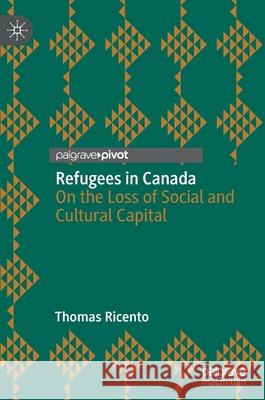Refugees in Canada: On the Loss of Social and Cultural Capital » książka
topmenu
Refugees in Canada: On the Loss of Social and Cultural Capital
ISBN-13: 9783030764524 / Angielski / Twarda / 2021 / 137 str.
Kategorie:
Kategorie BISAC:
Wydawca:
Palgrave MacMillan
Język:
Angielski
ISBN-13:
9783030764524
Rok wydania:
2021
Wydanie:
2021
Ilość stron:
137
Waga:
0.34 kg
Wymiary:
21.01 x 14.81 x 1.12
Oprawa:
Twarda
Wolumenów:
01
Dodatkowe informacje:
Wydanie ilustrowane











